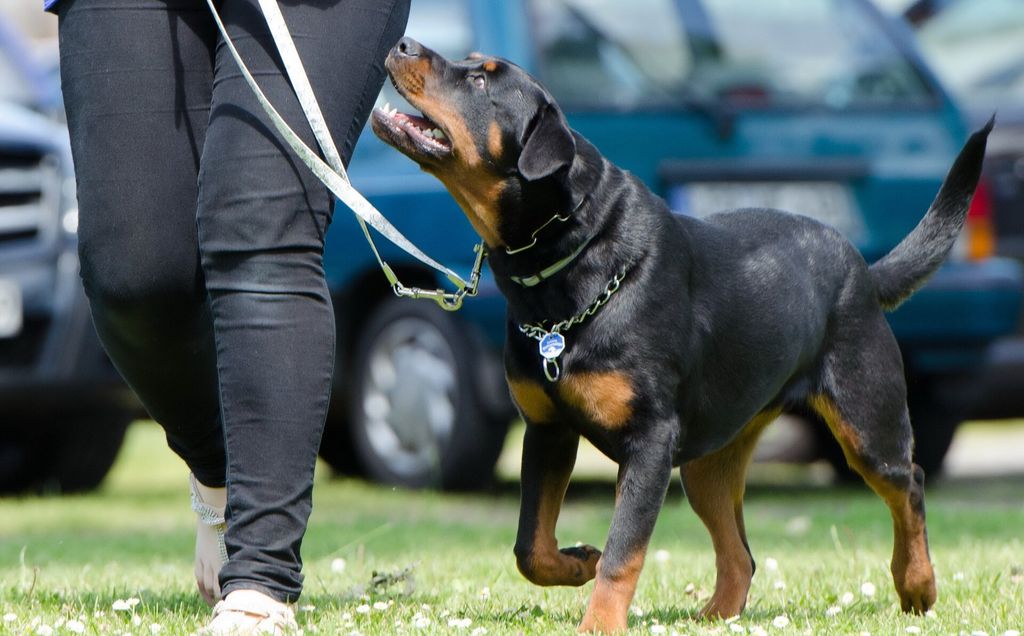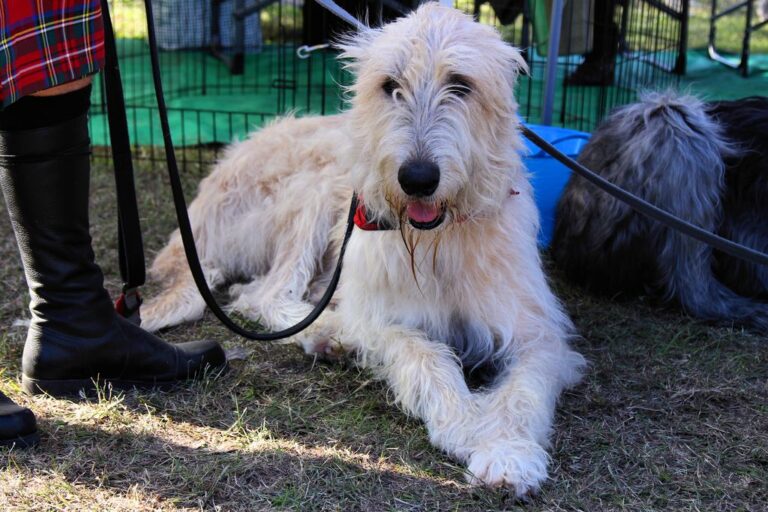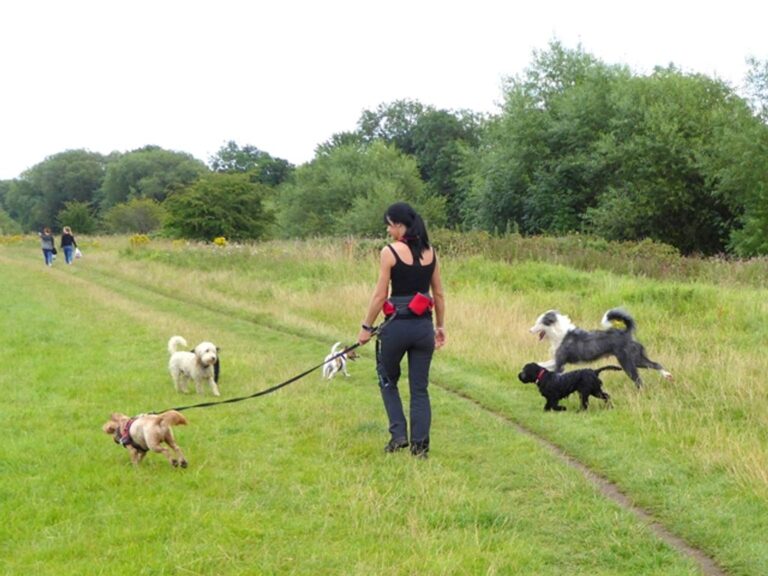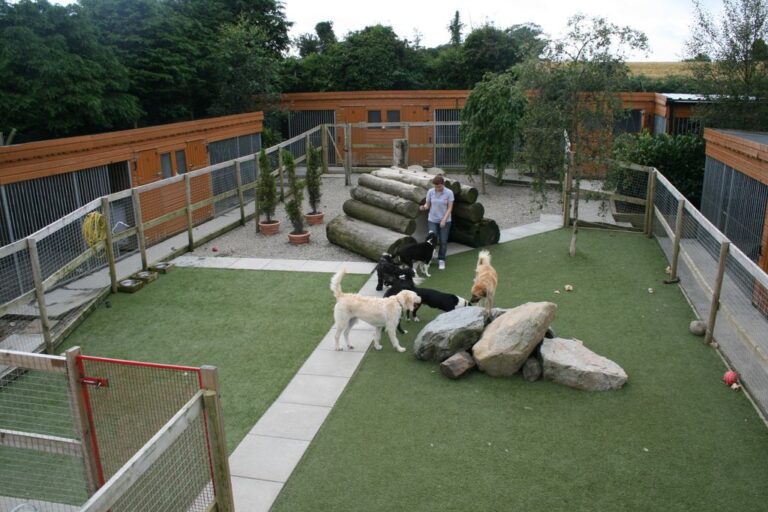Why Does My Dog Do X? Understanding Your Dog’s Behaviors
Understanding your dog’s behaviors is crucial for creating a harmonious and fulfilling relationship with your furry friend. In this article, we will explore four common dog behaviors and delve into the reasons behind them. By gaining insight into why your dog does certain things, you can better address their needs and provide appropriate training and care.
Key Takeaways
- Dogs may bark at strangers due to their protective instinct, socialization and fear, territorial behavior, or attention-seeking.
- Chewing everything could be a result of teething and exploration, boredom and lack of stimulation, anxiety and stress, or attention-seeking.
- Digging holes in the yard may stem from natural instincts, boredom and lack of exercise, escape or seeking comfort, or hunting or buried treasure.
- Jumping on people can be caused by excitement and greeting, attention-seeking, lack of training, or anxiety or fear.
Why Does My Dog Bark at Strangers?

Understanding the Protective Instinct
When it comes to understanding why our dogs bark at strangers, we need to consider the protective instinct that is ingrained in their nature. Dogs have a natural inclination to protect their territory and their family, which is why they may bark at unfamiliar faces. This behavior is rooted in their instinct to keep potential threats away from their pack.
Socialization and Fear
When it comes to dog walking, socialization plays a crucial role in shaping your furry friend’s behavior. Dogs who haven’t been properly socialized may exhibit fear or aggression towards strangers. It’s important to expose your dog to various people, animals, and environments from a young age to help them feel more comfortable and confident in different situations. By gradually introducing your dog to new experiences, you can help them develop positive associations and reduce their anxiety or fear.
Territorial Behavior
Territorial behavior is a common reason why dogs bark at strangers. Dogs have a natural instinct to protect their territory, which includes their home and their family. When a stranger enters their territory, they may perceive it as a threat and respond by barking. It’s important to understand why dogs exhibit this behavior so that we can address it appropriately.
Attention-Seeking
Attention-seeking behavior is a common trait in dogs. It can manifest in various ways, such as barking excessively, chewing on furniture, digging holes, or jumping on people. Popular dog breeds in the United States are often prone to attention-seeking behavior due to their high energy levels and need for stimulation. This behavior is their way of seeking interaction and entertainment from their owners.
Why Does My Dog Chew Everything?

Teething and Exploration
Teething and exploration are natural behaviors puppies go through. During this stage, dogs use their mouths to explore the world around them. Chewing helps relieve the discomfort of teething and also provides mental stimulation. However, it’s important to understand why dogs chew everything and how to redirect this behavior.
Boredom and Lack of Stimulation
When it comes to our furry friends, it’s important to understand that they have their own unique personalities. Some dogs are laid-back and independent, while others are more energetic and social. However, regardless of their personality, all dogs need mental and physical stimulation to stay happy and healthy.
Without enough stimulation, dogs can become bored and restless. This can lead to destructive behaviors like chewing on furniture or digging holes in the yard. It’s important to provide your dog with plenty of toys, puzzles, and interactive games to keep their minds engaged.
In addition to mental stimulation, dogs also need regular exercise to burn off excess energy. Taking your dog for daily walks or engaging in play sessions can help prevent boredom and provide an outlet for their natural instincts.
If you notice that your dog is exhibiting signs of boredom, such as excessive chewing or digging, it’s important to address the issue as soon as possible. Providing your dog with a stimulating environment and plenty of exercise can help alleviate these behaviors and keep them happy and content.
Anxiety and Stress
When it comes to anxiety and stress, our furry friends can experience these emotions just like we do. Dogs may exhibit certain behaviors as a way to cope with these feelings. It’s important to recognize the signs of anxiety and stress in your dog so you can provide the support they need.
One way to help alleviate anxiety and stress in dogs is through positive reinforcement training. By rewarding desired behaviors and providing a calm and structured environment, you can help your dog feel more secure and confident.
In addition, providing mental stimulation can be beneficial for dogs experiencing anxiety and stress. Engaging your dog in activities such as puzzle toys, obedience training, and interactive play can help redirect their focus and provide a sense of fulfillment.
Remember, each dog is unique, and what works for one may not work for another. If you’re unsure how to best help your dog with anxiety and stress, it’s always a good idea to consult with a professional dog trainer or veterinarian.
Attention-Seeking
Attention-seeking behavior is a common trait in dogs. It is their way of seeking our attention and interaction. Dogs may engage in attention-seeking behaviors such as jumping on people, barking excessively, or pawing at us. These behaviors are often a result of their desire for social interaction and play. While it can be cute and endearing at times, it is important to address and manage these behaviors to ensure a well-behaved and balanced dog.
Why Does My Dog Dig Holes in the Yard?

Natural Instincts
Natural Instincts
When it comes to digging holes in the yard, dogs have a natural instinct that dates back to their ancestors. Digging is a way for dogs to explore their environment, mark their territory, and find hidden treasures. It’s important to understand that this behavior is normal for dogs and is not necessarily a sign of a problem.
However, if your dog’s digging becomes excessive or destructive, there are a few things you can do to manage it:
- Provide your dog with an appropriate digging area such as a sandbox or designated spot in the yard. This will give them an outlet for their digging instincts.
- Ensure your dog is getting enough physical exercise and mental stimulation. Boredom can often lead to excessive digging.
- Supervise your dog when they are outside and redirect their attention to more appropriate activities if they start digging in unwanted areas.
Remember, understanding and addressing your dog’s natural instincts can help create a harmonious environment for both you and your furry friend.
Boredom and Lack of Exercise
When it comes to understanding why dogs chew everything, boredom and lack of exercise play a significant role. Dogs are naturally curious and energetic creatures, and when they don’t have enough mental and physical stimulation, they can resort to destructive behaviors. It’s important to provide your dog with plenty of opportunities to burn off energy and keep their minds engaged.
One way to combat boredom is by providing interactive toys and puzzles that challenge your dog’s problem-solving skills. These toys can keep them entertained for hours and prevent them from seeking out inappropriate items to chew on.
Regular exercise is also crucial for a dog’s overall well-being. A tired dog is a happy dog, and a tired dog is less likely to engage in destructive behaviors. Make sure to incorporate daily walks, playtime, and other physical activities into your dog’s routine.
Additionally, mental stimulation is just as important as physical exercise. Engage your dog in training sessions, teach them new tricks, or play brain games that require them to think and problem-solve. This not only keeps them mentally sharp but also helps tire them out.
By addressing boredom and providing adequate exercise, you can help prevent your dog from chewing everything in sight and redirect their energy towards more appropriate outlets.
Escape or Seeking Comfort
Escape or Seeking Comfort
Dogs may dig holes in the yard as a way to escape or seek comfort. Sometimes, when dogs feel anxious or stressed, they may try to create a safe space for themselves by digging a hole. This behavior can be seen as a coping mechanism for dogs who are experiencing discomfort or fear. It’s important to understand that digging holes is a natural instinct for dogs, and it’s not necessarily a sign of misbehavior or disobedience.
When dogs dig holes to escape, it’s essential to address the underlying cause of their anxiety or stress. Providing a calm and secure environment can help alleviate their need to dig. Additionally, providing alternative outlets for their energy and mental stimulation, such as interactive toys or puzzle games, can redirect their focus and prevent them from resorting to digging.
In some cases, dogs may dig holes in the yard to find relief from hot weather. Digging a hole can provide a cool spot for them to lie down and escape the heat. If this is the case, providing shaded areas or access to water can help prevent excessive digging.
It’s important to remember that each dog is unique, and the reasons for their digging behavior may vary. Observing your dog’s behavior and consulting with a professional dog trainer or behaviorist can provide valuable insights and guidance in addressing this issue.
Hunting or Buried Treasure
Hunting or Buried Treasure
When dogs dig holes in the yard, it may be because of their natural instincts. Digging is an innate behavior for many dogs, as it is a way for them to satisfy their hunting instincts. They may be trying to find something that is buried or hidden underground, like a bone or a toy. This behavior can be more common in breeds that have a strong prey drive.
However, digging can also be a result of boredom and a lack of exercise. Dogs that are not mentally and physically stimulated may resort to digging as a way to entertain themselves. Providing your dog with plenty of exercise and mental enrichment can help reduce this behavior.
If your dog is digging holes in the yard to escape or seek comfort, it may be a sign of anxiety or fear. Some dogs may dig under fences or in specific areas to create a den-like space where they feel safe. Addressing the underlying anxiety or fear through training and behavior modification techniques can help alleviate this behavior.
To prevent your dog from digging holes in the yard, consider the following tips:
- Provide your dog with plenty of exercise and mental stimulation to prevent boredom.
- Create designated digging areas in your yard where your dog is allowed to dig.
- Supervise your dog when they are outside to redirect their attention if they start digging.
- Use positive reinforcement training techniques to teach your dog alternative behaviors.
Remember, every dog is unique, and the reasons for digging holes in the yard may vary. It’s important to understand your dog’s individual needs and provide them with appropriate outlets for their natural instincts and energy.
Why Does My Dog Jump on People?

Excitement and Greeting
Excitement and greeting are common reasons why dogs jump on people. When we come home after a long day, our furry friends can’t contain their excitement and jump up to greet us. It’s their way of showing how happy they are to see us. While it may be endearing, it can also be a problem if the jumping becomes excessive or if the dog is too large and knocks people over. Training is essential to teach your dog appropriate greetings.
Attention-Seeking
Attention-seeking behavior is a common trait in dogs. They often engage in behaviors that are aimed at getting our attention and response. Whether it’s barking, jumping, or chewing, these actions are their way of communicating with us. Dogs are highly social animals, and they thrive on human interaction. When they engage in attention-seeking behaviors, they are mirroring your emotions and trying to connect with you.
Lack of Training
When it comes to understanding our furry friends, dog body postures play a crucial role. These subtle cues can tell us a lot about how our dogs are feeling and what they might be trying to communicate. Without proper training, it can be easy to misinterpret these signals and unintentionally reinforce unwanted behaviors. By learning to recognize and respond to your dog’s body language, you can build a stronger bond and address any behavioral issues more effectively.
Anxiety or Fear
Anxiety or Fear
When it comes to jumping on people, dogs may do so out of anxiety or fear. Anxiety can cause dogs to seek comfort and reassurance from their owners, and jumping on people may be a way for them to feel safe and secure. Similarly, fear can trigger a dog’s instinct to jump as a defensive response. It’s important to address the underlying anxiety or fear that may be causing this behavior.
To help your dog overcome anxiety or fear, consider the following:
- Provide a safe and calm environment. Creating a peaceful space for your dog can help reduce anxiety and fear.
- Use positive reinforcement training. Rewarding your dog for calm and relaxed behavior can help them associate positive experiences with being calm.
- Seek professional help if needed. If your dog’s anxiety or fear is severe or persistent, consulting with a professional dog trainer or behaviorist can provide guidance and support.
Remember, understanding and addressing the root cause of your dog’s jumping behavior is essential for their well-being and the safety of others.
In Conclusion
Understanding your dog’s behaviors can help you build a stronger bond with your furry friend. Barking at strangers is often a result of their protective instinct or fear, while chewing everything may be a sign of teething or boredom. Digging holes in the yard can be a result of their natural instincts or a way to alleviate boredom. Lastly, jumping on people can be a result of excitement or a lack of training. By addressing these behaviors and providing the right stimulation and training, you can ensure a happier and healthier relationship with your dog.
Why Does My Dog Bark at Strangers?
Why does my dog bark at strangers?
Dogs bark at strangers as a protective instinct. They perceive strangers as a potential threat and use barking as a way to warn and protect their territory.
How can I help my dog stop barking at strangers?
To help your dog stop barking at strangers, you can socialize them from an early age, gradually exposing them to different people and situations. Additionally, providing positive reinforcement and redirecting their attention can also be effective.
Is it normal for dogs to bark at strangers?
Yes, it is normal for dogs to bark at strangers. It is a natural instinct for them to protect their territory and alert their owners of potential threats. However, excessive or uncontrollable barking may require training and behavior modification.
Why does my dog only bark at certain strangers?
Dogs may only bark at certain strangers if they perceive them as a greater threat or if they have had a negative experience with similar-looking individuals in the past. It could also be due to specific body language or behavior displayed by those strangers.
Can I train my dog to not bark at strangers?
Yes, you can train your dog to not bark at strangers. This can be achieved through positive reinforcement training, desensitization, and counterconditioning techniques. Consulting with a professional dog trainer or behaviorist can be helpful in developing an effective training plan.
What should I do if my dog’s barking at strangers becomes a problem?
If your dog’s barking at strangers becomes a problem, it is important to address the underlying cause. Consulting with a professional dog trainer or behaviorist can help identify the cause and develop a customized training plan. They can also provide guidance on managing the behavior in the meantime.







3 Comments